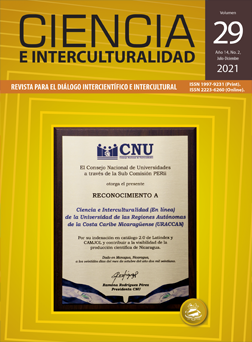Reflections on the post-COVID-19 educational scenario within the framework of Latin American and Caribbean Integration
DOI:
https://doi.org/10.5377/rci.v29i02.13310Keywords:
Education, educational integration, regional integration, COVID-19 pandemicAbstract
This paper has reflected on the post-COVID-19 educational scenario, within the framework of the current Latin American and Caribbean Integration. It analyzed integration and education, a historical look at the situation of education in the region; the crisis of the educational system generated by COVID-19 and the post pandemic proposals and goals that the region will have to face to recover education. The methodology is documentary and its approach is qualitative, supported by reports published by UNESCO, the World Bank, as well as scientific articles. It is highlighted that between 1960-1990, educational development in Latin America and the Caribbean was confused with the idea of the growth of infrastructure for education, which did not represent improvements in the quality of education, as it did not respond to the needs of the moment. Between 1980-1990, given the debt crisis and financial imbalances that prevailed in the region, it was considered the “lost decade” for Latin America, unfortunately no country achieved the proposed objectives of the model: growth and equity. This difference was marked by a determining factor: the level of education of the population. It is concluded that Latin America and the Caribbean present several institutional challenges post-COVID-19, which are not only related to the return to face-to-face classes but also to the possible changes that will be seen in several educational systems in the coming years.
Downloads
483
HTML (Español (España)) 515
EPUB (Español (España)) 123
XML (Español (España)) 172
resumen audio (Español (España)) 129
Abstract 125
Downloads
Published
How to Cite
Issue
Section
License
Copyright (c) 2021 URACCAN

This work is licensed under a Creative Commons Attribution-NonCommercial-NoDerivatives 4.0 International License.
Copyright © (URACCAN)

This journal is licensed under a Creative Commons Attribution-NonCommercial-NoDerivatives 4.0 International License.
This license allows others to download the works and share them with others, as long as their authorship is acknowledged, but they can not be changed in any way nor can they be used commercially.




